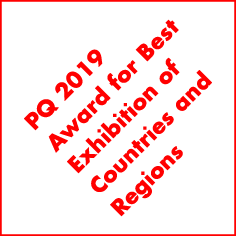“Yet we should oftener look over the tafferel of our craft, like curious passengers,
and not make the voyage like stupid sailors picking oakum.”
“Direct your eye right inward, and you’ll find
a thousand regions in your mind yet undiscovered.”.
Henry David Thoreau
In 2017 the artistic direction of the Prague Scenography Quadrennial held a symposium called Porous Borders. With this title they invited the participants to reflect on a concept as artificial as the border. In fact, neither the landscape nor knowledge have drawn lines that separate territories, everything is vibration points, flows of knowledge, traditions and customs that are in constant motion and evolution. Borders are mere organisational conventions that we believe are inalterable and too often impoverish the very rich panorama that surrounds us. It is necessary to play down the concept of border without playing down, underestimating or undermining the endless idiosyncrasies particular to each territory or field of knowledge.
Catalonia participated in this symposium on 12 October 2017, twelve days after the self- determination referendum. We delivered a presentation that was inevitably imbued with the 1 October events. Art, as opinion, is political. Reflection on art is, consequently, political reflection. For this reason we wanted to share with the audience the situation experienced in Catalonia a few days earlier as an act of defence of freedom of expression and democracy.
The proposal to participate in Scenography and Politics block of PQ talks in PQ 2019 was born in the context of this October symposium. In order to provide an updated vision of the situation in Catalonia, we made a talk with several speakers that we have entitled Catalonia. Art and Democracy.





